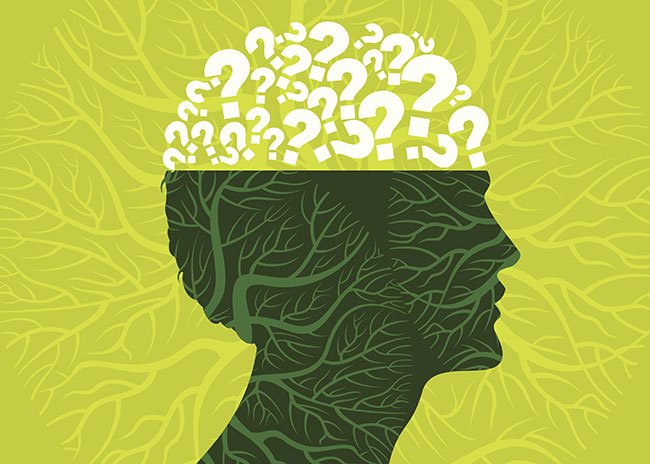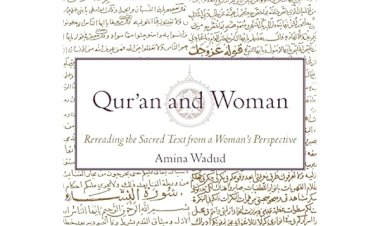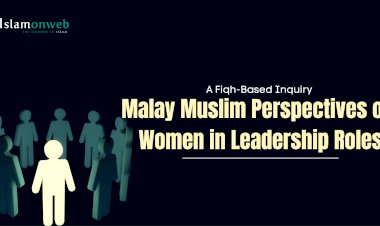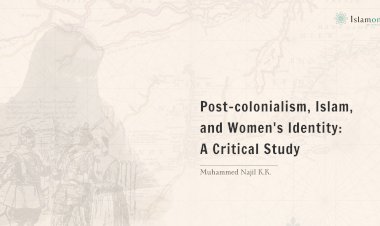Nāqiṣāat ‘Aql: Are Women Less Intelligent than Men?
The rapid growth of feminism in the Muslim world posed many new questions on the traditional understanding of femininity and womanhood, one of which is ‘are women less intelligent than men?’. In the context of Islam, the idea of Nāqiṣāat ‘Aql (as narrated by one Hadith) is explored widely by both believers and non-believers alike, which in turn reflected their own narratives on Islam and femininity. Thus, the idea of ‘Nāqiṣāat ‘Aql’ becomes a central topic of femininity in Islam. In this article, I will investigate its text, context, and competing narratives in this respect. Additionally, we will explore these competing narratives according to Ibn Khaldun’s theory of the influence of dominant culture and apply al-Shatibi’s inductive reasoning to reduce ambiguities in this regard.
The text of the Hadith
حَدَّثَنَا مُحَمَّدُ بْنُ رُمْحِ بْنِ الْمُهَاجِرِ الْمِصْرِيُّ، أَخْبَرَنَا اللَّيْثُ، عَنِ ابْنِ الْهَادِ، عَنْ عَبْدِ اللَّهِ بْنِ دِينَارٍ، عَنْ عَبْدِ اللَّهِ بْنِ عُمَرَ، عَنْ رَسُولِ اللَّهِ صلى الله عليه وسلم أَنَّهُ قَالَ " يَا مَعْشَرَ النِّسَاءِ تَصَدَّقْنَ وَأَكْثِرْنَ الاِسْتِغْفَارَ فَإِنِّي رَأَيْتُكُنَّ أَكْثَرَ أَهْلِ النَّارِ " . فَقَالَتِ امْرَأَةٌ مِنْهُنَّ جَزْلَةٌ وَمَا لَنَا يَا رَسُولَ اللَّهِ أَكْثَرَ أَهْلِ النَّارِ . قَالَ " تُكْثِرْنَ اللَّعْنَ وَتَكْفُرْنَ الْعَشِيرَ وَمَا رَأَيْتُ مِنْ نَاقِصَاتِ عَقْلٍ وَدِينٍ أَغْلَبَ لِذِي لُبٍّ مِنْكُنَّ " . قَالَتْ يَا رَسُولَ اللَّهِ وَمَا نُقْصَانُ الْعَقْلِ وَالدِّينِ قَالَ " أَمَّا نُقْصَانُ الْعَقْلِ فَشَهَادَةُ امْرَأَتَيْنِ تَعْدِلُ شَهَادَةَ رَجُلٍ فَهَذَا نُقْصَانُ الْعَقْلِ وَتَمْكُثُ اللَّيَالِيَ مَا تُصَلِّي وَتُفْطِرُ فِي رَمَضَانَ فَهَذَا نُقْصَانُ الدِّينِ " .
It is narrated on the authority of 'Abdullah b. Umar that the Messenger ﷺ observed:
O womenfolk, you should give charity and ask much forgiveness for I saw you in bulk amongst the dwellers of Hell. A wise lady among them said: Why is it, Messenger of Allah ﷻ, that our folk is in bulk in Hell? Upon this, the Prophet ﷺ observed: You curse too much and are ungrateful to your spouses. I have seen none lacking in Intelligence and religiosity but (at the same time) robbing the wisdom of the wise, besides you. Upon this, the woman remarked: What is wrong with our Intelligence and religiosity? He (the Holy Prophet ﷺ) observed: Your lack of Intelligence (can be well judged from the fact) that the evidence of two women is equal to one man, that is proof of the lack of Intelligence, and you spend some nights (and days) in which you do not offer prayer and in the month of Ramadan (during the days) you do not observe fast, that is the lack of religiosity.[1]
Is this Hadith ‘authentic’?
If there is any controversy in an Islamic text, many people tend to deny the authenticity and divinity of that document and claim that the Muslim community made this idea. It is basically a direct consequence of a defeatist attitude, in which one believes he is going to fail before he even starts. Thus, Islam becomes subject to established oppressive discourses and cultures as Ibn Khaldun argued that defeated people tend to follow victors.[2]
This Hadith is mentioned in multiple authentic sources, including Sahih al-Bukhari (304 and 1462), Sahih Muslim (79), Jami` at-Tirmidhi (2613), Sunan Ibn Majah (4003 and 3250), Sunan Abu Dawood (4679). They all assumed that this Hadith is an authentic text. Commenting on the chain of this Hadith, Badruddin al Aini said: they all are great and respected scholars of the discipline of Hadith.[3] Thus in terms of historical methodology, it is nearly impossible to reject the authenticity of the Hadith. Let’s try to understand it properly.
The context of Hadith
The context can help us delve deep into the story and its message and relate that to the broader perspectives of Islam, keeping in mind that contextualization might lead to deep-rooted beliefs and prejudices, thus integration between text and its context must be protected.
This Hadith was delivered by our prophet ﷺ at the time of Eid al-Fitr or Eid al-Adha in a special sermon for women. It is highly unlikely that the prophet ﷺ was making a new strict perspective in that festive moment to sadden those women. The sentences can indicate praise (the capacity of robbing the wisdom of the wise) in the form of errors (lacking in Intelligence and religiosity). It can be simplified as 'you may have some weakness, but to control people's minds, you have the strongest capacity.’
Therefore, if we say this Hadith reveals women's weaknesses, it would be poorly understood at the time when someone like Omar himself was worried that men are increasingly controlled by their wives.[4] This contextualization must lead us to differentiate between masculinity and femininity from the Islamic perspective as women's weaknesses can be viewed as masculine and their abilities can be seen as femininity.
But first, let us explore the competing narratives of this Hadith.
The competing narratives of Hadith
There are three discourses regarding this Hadith.
Many argue that women are less intelligent than men in the absolute sense; but this understanding can be rejected by Islamic principles and historical observations. The prophet's wives played a big role in the emerging Muslim society. In the field of knowledge, jurisprudence, and Hadith narration, women have the same status as men. Thus, it can be inferred easily that men are not more intelligent than women in the absolute sense.
Many believe that there is no difference between men and women in the absolute sense. The idea of masculinity and femininity are mostly social constructs. Thus, we have to reject any idea of womanhood and manhood as they lead to absolute discrimination. This is basically a direct influence of western gender studies, in which gender is viewed as a foundational discourse that political and religious actors employ in order to position themselves on a variety of issues. Thus, this Hadith becomes a sign of toxic masculinity in Islam where 'women' are stereotyped to be discriminated against.
The third narrative is somewhat more convincing than the others, which believes that this Hadith does not compare men and women but it focuses on femininity. The Hadith reveals the fundamental characteristics of womanhood and femininity from the perspective of Islam as they have more emotional power than their intelligence. As a result of this, they can, through their emotional capacity, control and influence men. On the other hand, it can be inferred that men have more intelligence than emotion. The aspects of intelligence are more prevalent in men whereas the aspects of emotion are more clearly recognizable in women. Thus, we can argue that this Hadith is not about any comparison between men and women; rather it reveals the fundamental characteristics of manhood and womanhood. Therefore, we cannot say that all women are less intelligent than men or that there is no difference between men and women. This understanding is called gender intelligence.
The Quranic understanding of masculinity-femininity and their roles in the family
One may argue that this Hadith contains many ambiguities; thus it is necessary to relate it to the broader Islamic perspectives. Imam al-Shatibi proposed that by Inductive reasoning through other texts, we can eliminate the ambiguities and reach the most relevant meaning, which is known as Maqāṣid theory.[5]
Let us understand the Hadith in the light of Quranic verses.
The grandmother of Jesus pledged to sacrifice her child in the way of Allah ﷻ while she was pregnant, intending to employ the child in the service of Baitul Muqaddas. Later, when she gave birth to a girl, she was sad, 'God, I gave birth to a girl, boys and girls are not the same. Girls can't perform duties like boys, how can my daughter serve Baitul Muqaddas like boys? Allah ﷻ, I seek your help, I take refuge in you.' Allah ﷻ accepted the prayer of the grandmother of Jesus.[6] Maryam is called in the holy Quran an exemplary character for believers.[7]
Many points can be inferred from this incident: the characteristics of men and women are not the same as stated in the verse above, but in terms of piety, there is no difference between men and women, as Maryam is considered a perfect example for believers. The grandmother of Jesus hoped for a son, but Allah ﷻ gave her a daughter. "Gender-language-ethnicity is not important to Allah ﷻ. Whose deeds are better and who is more pious, that is the only criterion of respect-acceptability".[8] By giving a daughter instead of the desired son, Allah indicated the equality of men and women in terms of piety. Umm Salama (RA) complained to the Prophet ﷺ, 'why do men have certain characteristics and responsibilities, while women are lagging behind?' Allah ﷻ revealed verses in response to her question, 'Your -men and women- goals and status are identical, you are complementary to each other. If women fulfil their responsibilities according to their characteristics, they will be rewarded the same as the responsibilities of men. There is no notable difference between men and women according to Allah ﷻ. Whoever does good deeds, Allah ﷻ will give him a good reward.[9]
Of course, the characteristics of men and women are not the same. Allah ﷻ says clearly in Surah Nisa, 'Allah ﷻ has given each of them special characteristics in some respects.[10] Allah ﷻ has given them different responsibilities due to their unique characteristics. The responsibilities of men include defence, management, and financial burden[11]and that of women includes family-management of peace-shelter.[12] However, although Islam has given some basic principles regarding the family responsibilities and rights of husband and wife, it has not determined everything, because there may be some differences between responsibilities and rights depending on the context and needs.
If the husband becomes disabled, the wife has to play a 'major' role in defence and management. If the wife becomes disabled, the husband has to perform special responsibilities in managing the internal affairs of the family. Allah ﷻ clarified this matter as 'the rights and responsibilities of men, and women will be determined according to 'Ma'ruf'.[13] Ma'ruf includes several things: need-context-convention as needs-context-norms may differ from one person to another. Husband and wife will decide this matter by themselves. Still, if there is a disagreement, men will take more responsibility than women, and women will accept men's words for family interests.[14]
Based on these verses, we can conclude that masculinity and femininity are not the same, as they have different characteristics and roles. Based on needs-context norms, they can contribute to each other. Thus, it is clear that although the characteristics are static, family and social roles are more fluid and context-based.
How Muslim cultures interpreted this Hadith
As we mentioned earlier that this Hadith mainly explained the essential characteristics of masculinity-femininity in terms of intelligence and emotion. Muslim cultures never undermined these considerations as these characteristics are stated clearly in Quranic verses, although the roles of masculinity-femininity were not static in Muslim societies as their characteristics, rather the social roles of masculinity-femininity were mostly determined by needs-context-norms, and this confirms the Quranic idea of ‘Maruf’.
To support the social needs-context-norms, many people misinterpreted this Hadith. They made their social needs-context-norms ‘the best Islamic rulings’ as Ibn Khaldun stated that established ideas are considered the best ideas because people mostly cannot think beyond their needs-context-norms.[15] Consequently, many think that working women are perfect women and there is no difference between men and women whereas others tend to believe that women are inferior to men in everything, thus women are prohibited to argue with their men counterparts and they cannot work outside of their homes.
We should not load our personal beliefs and prejudices to misinterpret the Hadith. Social needs-context-norms are very important as they are considered legal proof if they do not contradict the essential values of Islam, but they cannot alter the meaning of religious texts. Therefore, we must understand this Hadith based on its text, context, and related texts.
Conclusion
In brief, several points can be understood from this article:
1) This Hadith is not primarily made of any comparison between men and women; rather it is focused on femininity. The Hadith reveals the fundamental characteristics of womanhood and femininity from the perspective of Islam as they have more emotional power than their intelligence.
2) There are many competing narratives on this Hadith. One argues for the superiority of men, another believes there is no difference between men and women, but we conclude that although the roles of masculinity-femininity were not static in Muslim societies as their characteristics, rather the social roles of masculinity-femininity were mostly determined by needs-context-norms, and this confirms the Quranic idea of ‘Maruf’.
3) We applied mostly two major theories: Ibn Khaldun’s theory of the influence of dominant culture on religious interpretation and Al Shatibi’s Inductive reasoning through texts best known as Maqāṣid theory. Through Ibn Khaldun’s theory, we analyzed how religious interpretations were influenced by its context. Through al Shatibi’s Inductive reasoning, we explored the broader context and values of this Hadith to reduce ambiguity in this regard.
Endnotes
[1] Sahih Muslim, 147
[2] Khaldun. (1981). The Muqaddimah (Vol. 1, p. 184). Darul Fikr.
[3] al Aini. (n.d.). Umdat al-Qari (Vol. 1, p. 201). Darul Fikr.
[4] Sahih al-Bukhari, 2468
[5] Shatibi. (2003). Agreements in the Principles of Sharia (Vol. 1, p. 17). Dar al-fikr.
[6] Al-Imran, 35-36-37
[7] Tahrim, 12
[8] Hujurat, 13
[9] Al Imran, 195
[10] Nisa, 32-34
[11] Nisa, 32-34
[12] Nisa, 34 / Rum, 22
[13] Al-Baqarah, 228
[14] Al-Baqarah, 228
[15] Khaldun, 184
About author
Iftekhar Jamil Fuad is Degree student of Department of Fiqh and Usul al-Fiqh at International Islamic University (IIUM), Kuala Lumpur.
Disclaimer
The views expressed in this article are the author’s own and do not necessarily mirror Islamonweb’s editorial stance.
6 Comments
-

Let me just clarify, as a muslim, that the context of the Hadith wasn't related to intelligence but reasoning, or simply letting your logic drive you, not your sentiment. "Aql" in Arabic means mind, not intelligence, and the Hadith was never explained as men in general are more intelligent but there're women who are more intelligent, no, it just states that being more driven by emotions is more common in women, and it's been argued by scholars that not all women are necessarily emotional. I think that's how you were supposed to explain it, is Islam there're no sex differences regarding intelligence, just like how scientifically proven.
-

-

...
10 months ago
There's something wrong with the explanation, women aren't less in terms of intelligence according to the Hadith, it's just about how rational reasoning is more common in a man, in terms of intelligence there're no sex differences whether in Islam or science.
-
-

-

-

























Leave A Comment